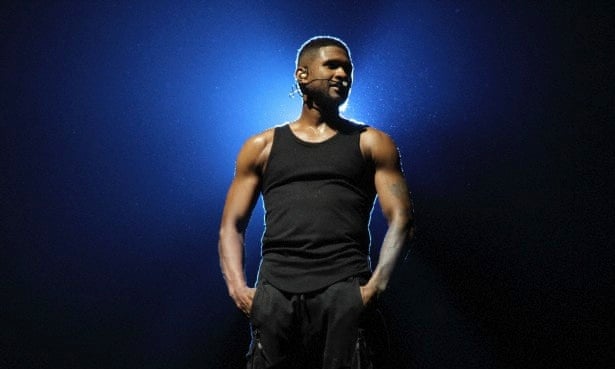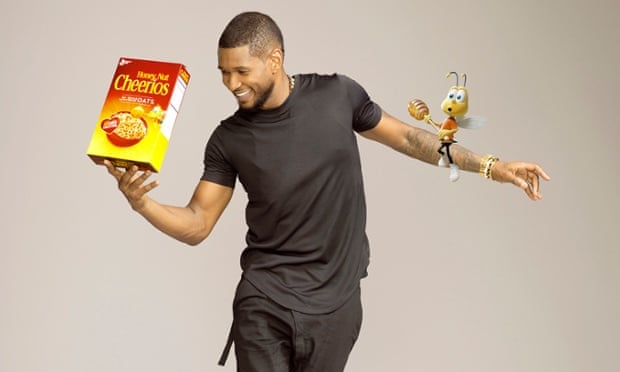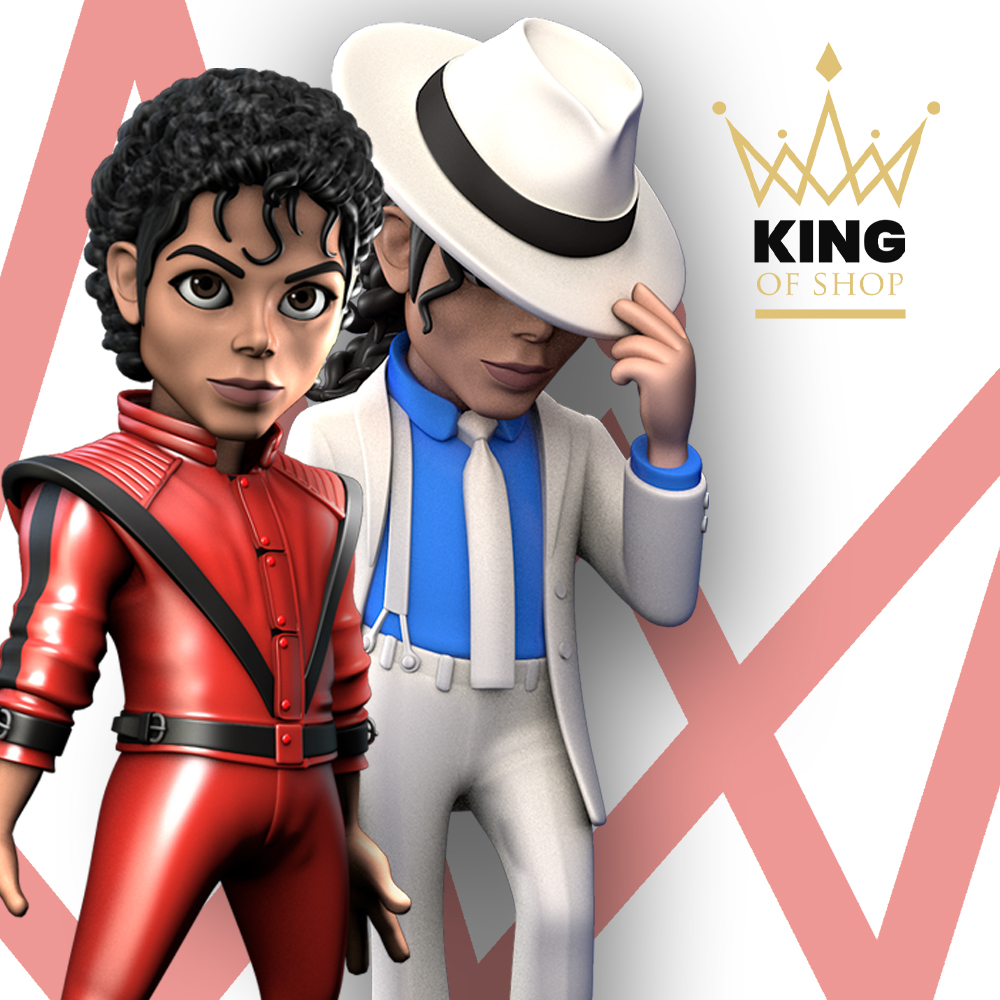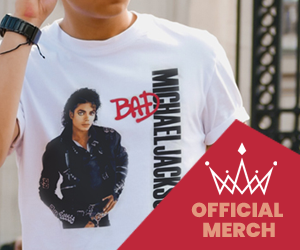He had the biggest album of the noughties and has dabbled in musicals, movies and mentoring. But could the R&B star be at a career crossroads? ‘Music is being used as free goods,’ he tells us, before announcing that his next single will be free with Cheerios

From his fur trapper’s hat to his black Margiela hi-top trainers, Usher looks like the consummate modern pop star. Sitting in a posh hotel meeting room in New York’s Upper East Side, two days after playing a triumphant, sold-out show at Madison Square Garden, he should be basking in his success, though one thing suggests that he is nervous: when I tell him how much I enjoyed it, he immediately inquires: “What was your favourite part?”
In fact, though the 36-year-old’s demeanour is calm and genial, with a molten southern accent that’s sheer aural nectar (he has a surprising habit of pointing for emphasis), Usher is navigating a predicament that comes to most megastars, however impregnable they might appear. In May, his comeback single, Good Kisser, only got to No 65 in the States (No 10 in the UK), and the followup, She Came To Give It To You, despite borrowing the melody of the SOS Band’s Just Be Good to Me and a rap by Nicki Minaj, did even worse, reaching No 89 (No 16 in the UK). The day after we meet, Billboard announces that Usher’s next song, Clueless, will be made available exclusively via boxes of Honey Nut Cheerios sold at Walmart; you’ll find a download code at the bottom of the packet. It doesn’t exactly scream confidence.
Usher had his first career wobble back in October 2000. Pop Ya Collar, which was intended to be the first single from his new album, underperformed in America, partly because of a leak on Napster, an early indication of the mayhem that the web would wreak on the music business. So Usher overhauled his entire album, finally putting out the 8m-selling 8701 the following July. Plenty has changed since then, but once again Usher is delaying his next album release. Not that anyone’s saying the poor performance of those first two singles is the reason: “I thought there would be nothing greater than to come off the high of being on tour than to go back into the studio,” he says.
Originally scheduled for around now, the album, titled UR, will now come out in the first half of next year. That means Usher is currently touring the States with no product to shift, few new songs to play, and an elaborate production with pyrotechnics, hydraulic platforms, nine musicians, eight dancers and three backing singers.
Yet, as he says, it provides a good opportunity to explore the breadth of his music since his commercial breakthrough in August 1997, when the sparse, insidious funk of You Make Me Wanna … got to No 1 in the UK and No 2 in the US. “I wanted to encapsulate what the past 20 years have been for me,” he says. “I wanted the audience to reminisce.”
As someone who was working on pop magazines in 1997, the gig did indeed inspire a little reminiscing. Back then, record companies used to invite the media to showcases, basically a lavish midweek booze-up incorporating a short performance from whichever new act they were plugging. Usher’s took place at the Café de Paris in London’s Piccadilly Circus; the 19-year-old dropped his trousers at the end, to the raucous appreciation of the well-oiled radio pluggers, TV bookers and hacks.
“That was crazy,” says Usher. “It’s a bit of a different show now. I’m more mature, I don’t drop my trousers any more. Unfortuntely they do fall down from time to time – I’m losing weight. A wardrobe malfunction.” That’s hardly the only change; 17 years on, record sales have collapsed, with Usher’s career telling the story almost in microcosm. His 2004 albumConfessions was the biggest seller of the past decade in the US, selling 10m copies there and 20m in all; but the 2008 followup Here I Stand sold a quarter of that number.
Today, record company budgets have shrunk, the free music-business booze has mostly run dry, and few of Usher’s R&B peers remain in the exalted positions they occupied in the late 90s; just Beyoncé, Justin Timberlake (who took five years off to make films) and Pharrell Williams, who’s had his own ups and downs.
Yet despite it all, Usher is still here, the huge spread of hits he performs at the Garden demonstrating not only his own formidable talents – his singing is exquisite, his dancing impeccable – but how much he’s been willing to adapt his sound. Back when Usher was starting out, producers including Timbaland, Rodney Jerkins and the long-forgotten Kevin “She’kspere” Briggs were redefining R&B; then in 2004 Yeah, the single that kicked off Confessions, propelled crunk and Lil Jon to the top of the charts worldwide. Since then, alongside the smouldering slow jams that have always delighted his hardcore fans (Burn reduces the New York audience to blancmange), Usher has experimented with europop, house and lairy EDM on hits such as OMG (a US and UK No 1), and R&B of a more futuristic bent, as on the sublime 2012 hit Climax, produced by Diplo.
Ask Usher who he’s working with on his next album, and you get a list of collaborators including Skrillex, Ed Sheeran, uber-pop producer Max Martin, Jimmy Jam & Terry Lewis, and Disclosure (their last session done via Skype), though Usher says that his guiding lights are still 90s R&B geniuses Babyface and LA Reid. The challenge, of course, is avoiding the sonic equivalent of mutton dressed as lamb, or a record that adapts sounds from so many places that Usher’s personality – often rather nebulous on record – evaporates completely. Watching his live show, you wonder where his heart really lies; in the soul revue-style tranche of songs with a brass section, or with the pounding EDM of Numb, produced by Swedish House Mafia.
Usher skirts the question, but indicates that EDM has become all-pervasive, particularly in America: “They need that tempo on the radio and they need that drive.” Its introduction into soul music was, he says, “not a bad thing; some really great records and new artists were introduced, but for the old artists, who were keeping to the authenticity of R&B, they kind of fell by the wayside.”
He seems much more excited by British artists such as Adele and Sam Smith who, he says, offer “a different experience of soul music. In a way, European artists have been able to preserve all the greatest parts of R&B without giving you too much of the raw essence of it so that it feels too sexual or too specific. Right? And then it’s well produced. Sonically it sounds on the same level as something that would be played by the Dave Matthews Band.” That is, if nothing else, a surprising benchmark for aural splendour.
His interest in younger artists is undoubtedly genuine. He loves FKA twigs (“It’s a little more artsy, but it’s real”), Hawaiian strummer Mike Love and Malaysian singer-songwriter Yuna, and has mentored several fledgling stars, notably Justin Bieber. “Any artist has ebbs and flows in their life and career,” he says of Bieber’s well-publicised recent vicissitudes. “I think the story is just begun, you’ve not seen the best of his talent. In life, you have to go through something to get to something. From that the inspiration comes having something of substance to talk about; otherwise you’re just considered to be fluff.”
Rightly, Usher sees himself in the grand tradition of soul men: “It’s part of what makes me great, being able to follow Michael Jackson, James Brown, Stevie Wonder, Donny Hathaway, great artists who were also incredible songwriters.” Brown anointed Usher as his successor – “He always told me: ‘If you stay ready, you ain’t got to get ready’” – while Jackson told him: “If you want to continue to be great, you’ve got to work hard.”

And work hard is exactly what Usher does. Like many people today, he’s grafting twice as much for the same, or fewer rewards. He accepts that these days, live shows rather than records are where he makes his money, but spares a thought for the producers who have machine-tooled and polished his records with such dedication – and at such expense.
“Music is now being used as a free good that lures people in; it’s sad, because the producers are like: ‘Damn, this is my living.’ They get paid an advance on the record they’re going to do, which is not much to some, especially if you’re balancing a lifestyle and you’re buying jewellery and clothes and all that stuff.” OK, it’s not quite the breadline, but his point stands: “Music is not free to make. Studios are going under because people now work at laptops. Quantity over quality is what begins to happen; the idea of what quality is has changed.”
The physical punishment of singing and dancing for two hours every night must take its toll on a 36-year-old father of two; if Usher were a footballer, he’d be approaching retirement by now, while no male rock star would be expected to remain in peak physical condition.
“I’m a go-hard type,” he says obstinately. “It’s in my DNA. I physically prepare my body as if I’m a trained athlete. After the shows, I sit in an ice tub and do a hot dip, cold dip, and sometimes I sit in a hyperbaric chamber to rejuvenate my energy. I have a workout regimen that I do, just to keep my body going. If you get lazy when you’re onstage, it shows.” Having dispensed with the services of his personal vegan chef, Usher no longer adheres to that diet, and he likes a drink: “Milk stout is a problem for me, man. But if I do decide to have a pint, as you would say, I have to work a little bit harder; I have to get out and run.”
Usher also took up boxing to play Sugar Ray Leonard in Hands of Stone, a film released next year, which also stars Robert De Niro. It’s a reminder of Usher’s remarkable portfolio career, which at the very least should provide a bulwark against those falling record sales. “As I recognise my talents I work on them and I look for outlets,” he says. “As an actor I’ve tried a lot of different things – I’ve tried TV, I’ve tried reality TV doing The Voice, I’ve done Broadway [starring in the musical Chicago], I’ve acted in films, I entertain, I dance, I sing, I write, I produce, I mentor – whatever the order for the day is, I take it up. And I’m a dad. I’m just being the best that I can.”
Avuncular and engaged, as Usher relates his advice, you can see why his insights are prized by younger musicians, and he’s pleased that artists such as Drake have acknowledged him as an influence: “It’s the greatest form of flattering when someone recognises what you’ve done and put it in your music,” he says. He’s adamant that in another 20 years’ time he will still be an entertainer, or motivating younger artists behind the scenes. The era in which he sold 65m records may have passed, but Usher still has lots to give – and it doesn’t need free Cheerios to make it more enticing.
SOURCE: The Guardian



